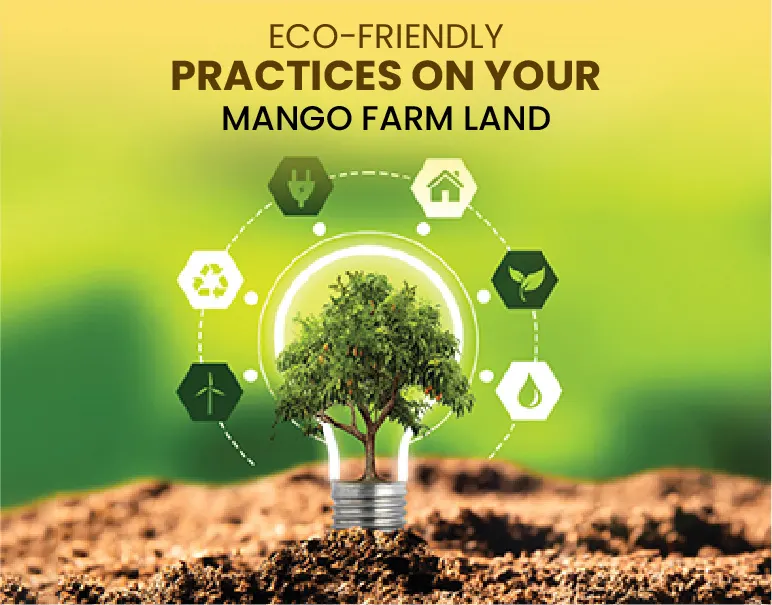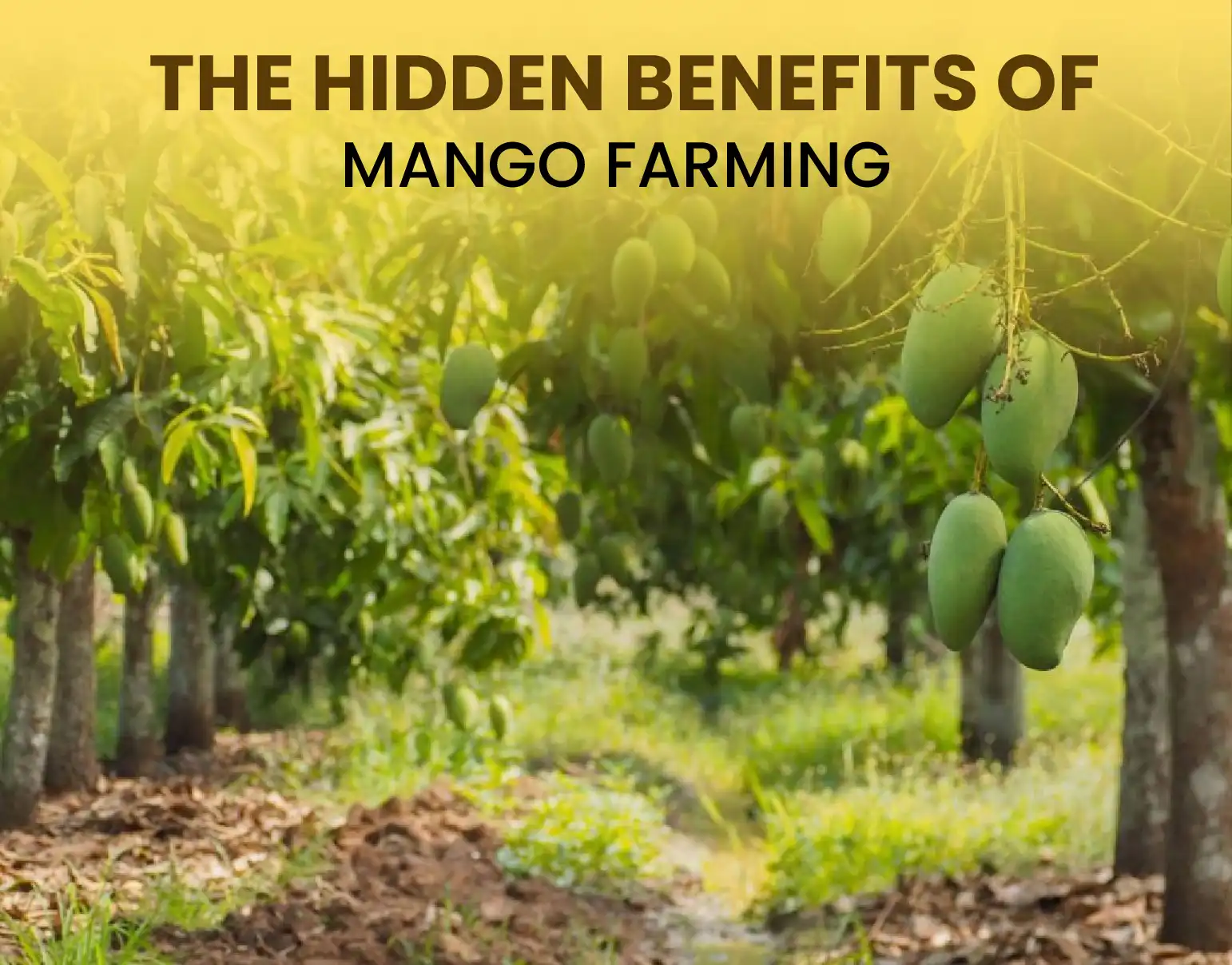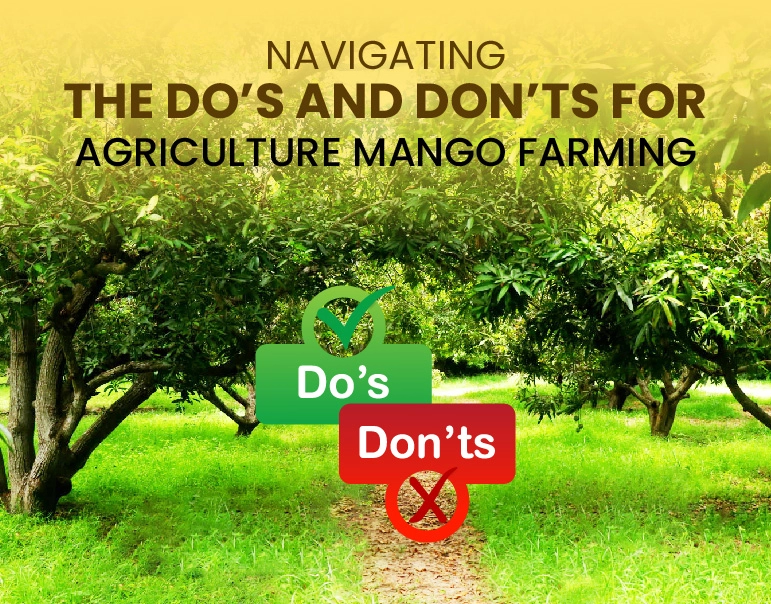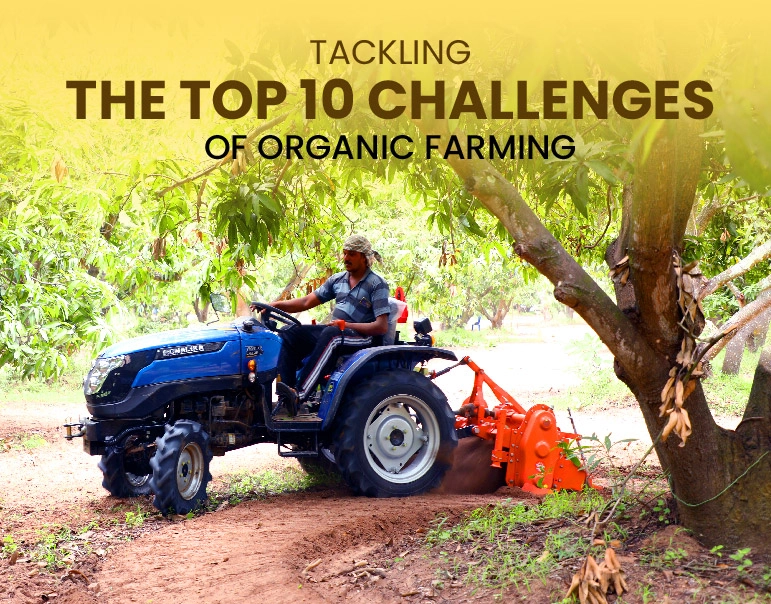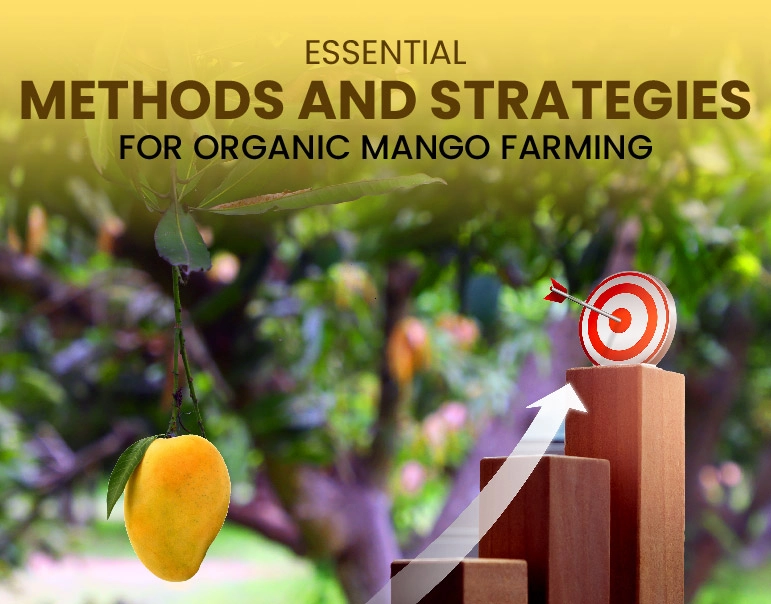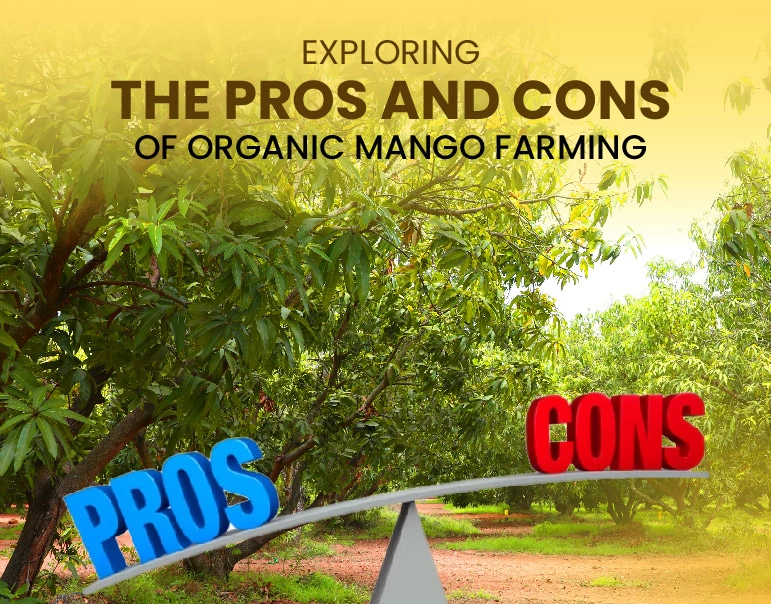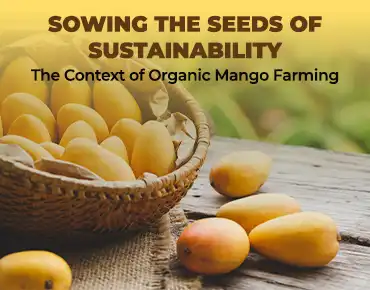Tackling the Top 10 Challenges of Organic Farming
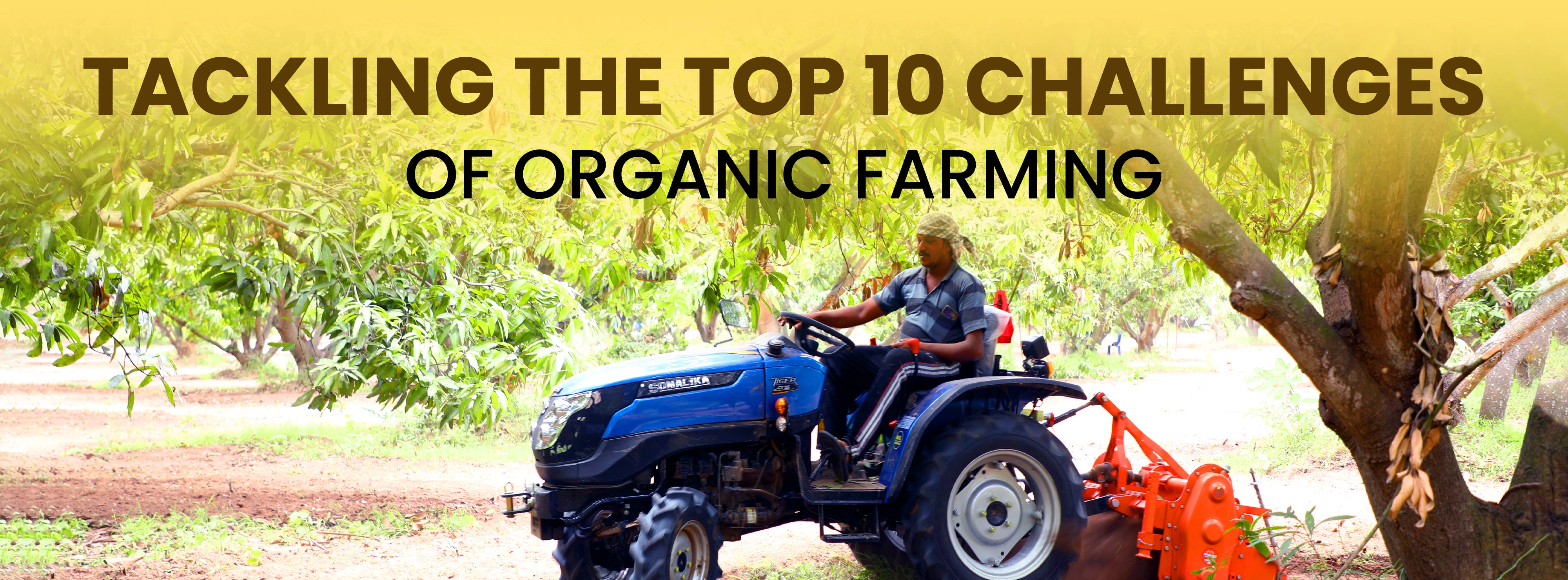

Organic mango farming is a sustainable agricultural practice that prioritizes environmental preservation, soil health, and consumer well-being. While it offers numerous benefits, agriculture mango farm also presents several challenges that farmers must overcome to ensure its success. In this article, we'll delve into the ten major challenges faced by organic farmers and explore viable solutions to address them.
Challenge: Weeds compete with crops for nutrients, water, and sunlight, leading to reduced yields.
Solution: Employ mulching, crop rotation, cover crops, and mechanical cultivation to suppress weed growth. Additionally, hand-weeding and innovative techniques like laser weeding can target weeds effectively.
Challenge: Organic mango farms face limitations in using synthetic pesticides, making pest and disease management more challenging.
Solution: Implement Integrated Pest Management (IPM) strategies involving beneficial insects, trap crops, crop rotation, and resistant plant varieties. Regular monitoring and early intervention are crucial for preventing pest and disease outbreaks.
Challenge: Maintaining soil fertility without synthetic fertilizers can be daunting, leading to nutrient depletion over time.
Solution: Focus on building soil organic matter through composting, green manure, and crop residues. Soil testing helps assess nutrient levels, enabling farmers to tailor organic amendments like bone meal, fish emulsion, and rock phosphate effectively.
Challenge: Organic fertilizers, pesticides, and seeds are often more expensive and less readily available compared to conventional inputs.
Solution:Foster local networks for sourcing organic inputs, promote on-farm nutrient cycling through composting, and encourage seed-saving practices within the community. Government subsidies and grants can also alleviate the financial burden on organic farmers.
Challenge: Organic products face market barriers and price fluctuations, impacting farmers' income stability.
Solution: Diversify marketing channels by engaging with local farmers' markets, community-supported agriculture (CSA) programs, and online platforms. Collaborate with other farmers to collectively negotiate fair prices and advocate for supportive policies to stabilize organic market dynamics.
Challenge: Meeting organic certification standards requires meticulous record-keeping, documentation, and adherence to strict regulations.
Solution: Invest in comprehensive record-keeping systems, attend training workshops on organic certification procedures, and maintain transparent communication with certification bodies. Cooperatives and farmer associations can provide resources and support to navigate the certification process effectively.
Challenge: Extreme weather events and shifting climate patterns pose risks to crop productivity and farm sustainability.
Solution: Adopt climate-smart agricultural practices such as agroforestry, water harvesting, and diversified cropping systems to enhance resilience. Implement on-farm conservation measures like contour plowing, terracing, and agroecological zoning to mitigate climate-related vulnerabilities.
Challenge: Organic farming often requires more labor-intensive tasks such as manual weeding and pest management.
Solution: Invest in farm mechanization where feasible, streamline farm operations through efficient planning and workflow management, and explore collaborative arrangements like community-supported agriculture (CSA) to distribute labor responsibilities among members.
Challenge: Transitioning to organic farming demands specialized knowledge and skills in ecological management practices.
Solution: Facilitate farmer training programs, workshops, and knowledge-sharing platforms to exchange best practices and technical expertise. Encourage mentorship opportunities and peer-to-peer learning networks within the organic farming community to support skill development and capacity-building.
Challenge: Limited access to arable land and land fragmentation can constrain the expansion of organic farming operations.
Solution: Advocate for land-use policies that prioritize conservation and sustainable agriculture, promote land trusts and cooperative land-sharing initiatives, and engage in land stewardship agreements to secure access to suitable farmland for organic production.
Organic mango farms present a promising pathway towards sustainable agriculture, but overcoming its challenges requires innovation, collaboration, and commitment. By addressing soil fertility, weed and pest management, access to inputs and markets, certification and compliance, climate resilience, land tenure, knowledge sharing, and policy support, organic farmers can thrive and support the development of a more sustainable and healthful food system. Through concerted efforts and collective action, we can navigate the fields of organic farming towards a greener and more resilient future.
